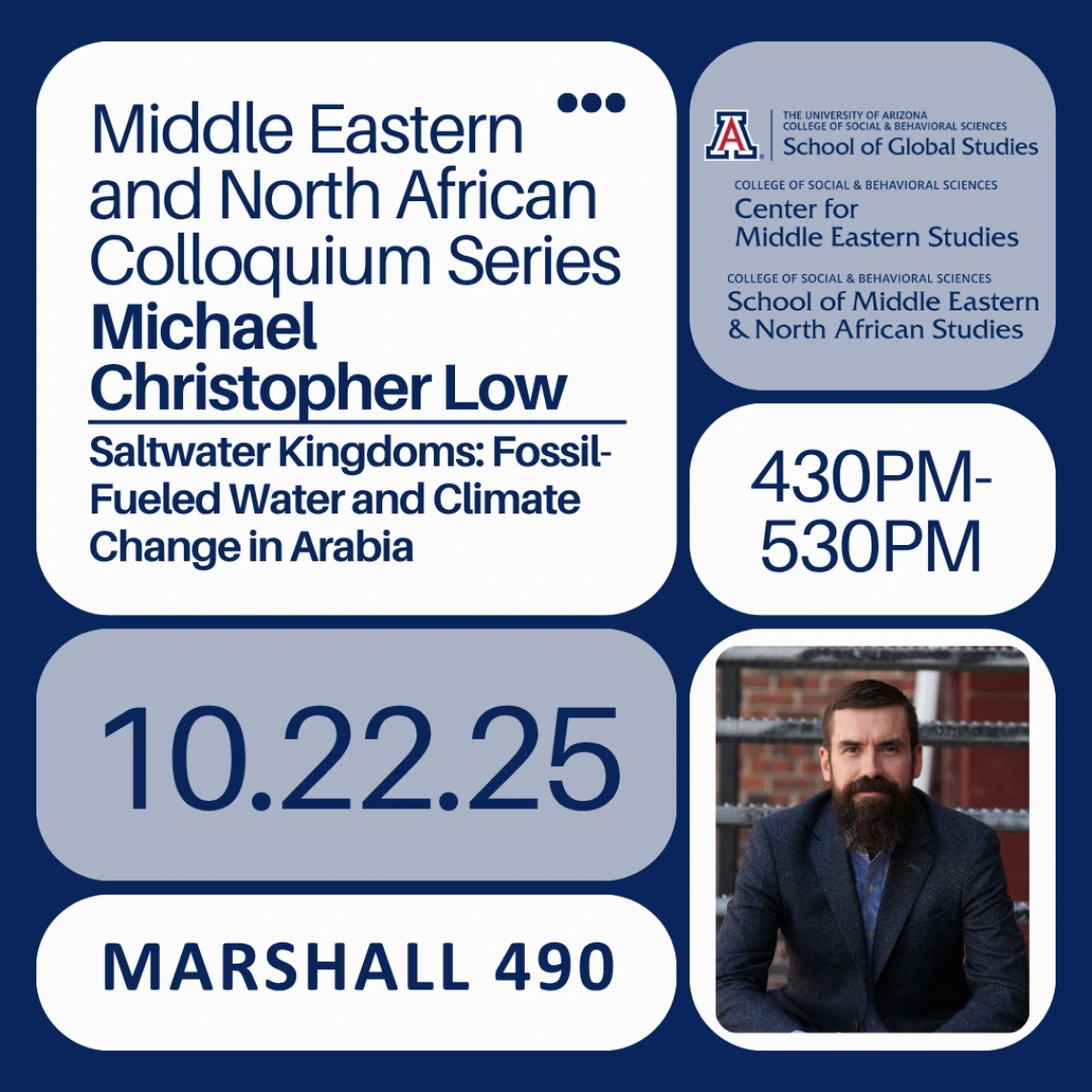Saltwater Kingdoms: Fossil-Fueled Water and Climate Change in Arabia

When
Where
Saltwater Kingdoms: Fossil-Fueled Water and Climate Change in Arabia
Bio: Michael Christopher Low is Associate Professor of History and Director of the Middle East Center at the University of Utah. Low received his PhD from Columbia University in 2015 and previously taught at Iowa State University. He is the author of Imperial Mecca: Ottoman Arabia and the Indian Ocean Hajj (Columbia University Press, 2020). In 2021, Imperial Mecca received the Middle East Studies Association’s Albert Hourani Book Award and was shortlisted for the British-Kuwait Friendship Society Book Prize. Imperial Mecca has since been translated into Arabic and Turkish. Low is also co-editor of The Subjects of Ottoman International Law (Indiana University Press, 2020). In 2020-2021, he was a Senior Humanities Fellow for the Study of the Arab World at NYU Abu Dhabi. Low is currently working on a new book, Saltwater Kingdoms: Fossil-Fueled Water and Climate Change in Arabia, under contract with University of California Press.
Abstract: The ISIS’s declaration of caliphate in 2014 sent shockwaves around the world. What objectives did ISIS leaders seek to achieve through their audacious attempt to resurrect such an archaic institution? This study scrutinizes Dabiq, the official transnational media outlet of ISIS published between 2014 and 2016, from the perspective of political marketing. It primarily argues that ISIS not only sells “a story” but also “a brand” in its pursuit of global influence and power. A close reading of Dabiq reveals that the organization strips the concept of the caliphate of its rich historical context and diverse interpretations and turns it into a “political brand” specifically tailored to further its political ambitions. In the magazine, while the caliphate is associated with the glorious age of Muslims, there is a deliberate attempt to obscure the existence of weak caliphal regimes, the caliphal titles used by Shia Muslims (under Fatimid rule) or the caliphal periods during which religious tolerance and generosity were exhibited toward non-Muslims. This caliphal brand is marketed through a highly simplified and distorted characterization of history, coupled with selective interpretations of hadiths and Qur’anic verses, as well as disturbing violent imaginary. This branding technique is used to outmaneuver the organization’s competitors in the radical Islamist market by presenting an appealing image that showcases the organization’ readiness and ability to unite all Sunni Muslims under a singular banner. By evoking themes of “unity,” “power,” and “action,” the caliphal brand is crafted to appear attractive to its target audience - Sunni Muslims- by manipulating the most fundamental human desires: the need for belonging, certainty, and empowerment.

